Filter by
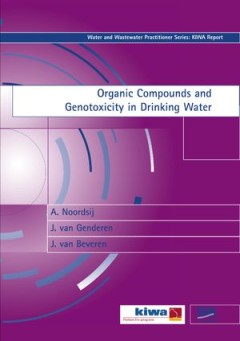
A Guide to Understanding the Fundamental Principles of Environmental Manageme…
A Guide to Understanding the Fundamental Principles of Environmental Management It Ain’t Magic: Everything Goes Somewhere
- Edition
- -
- ISBN/ISSN
- 9781789060980
- Collation
- 220 hlm
- Series Title
- -
- Call Number
- -
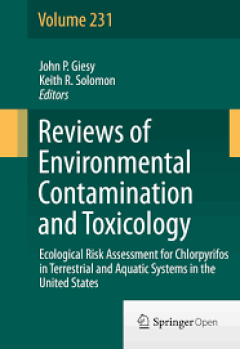
Ecological Risk Assessment for Chlorpyrifos in Terrestrial and Aquatic System…
Introduction CONTENTS Preface Foreword by Keith Solomon and John Giesy Foreword by Coordinating Board of Editors Ecological Risk Assessment of the Uses of the Organophosphorus Insecticide Chlorpyrifos, in the United States John P. Giesy, Keith R. Solomon, G. Christopher Cutler, Jeffrey M. Giddings, Don Mackay, Dwayne Moore, John Purdy, W. Martin Williams Properties and Uses of Chlorpyrifos in t…
- Edition
- -
- ISBN/ISSN
- 9783319038650
- Collation
- XVI, 269
- Series Title
- -
- Call Number
- -
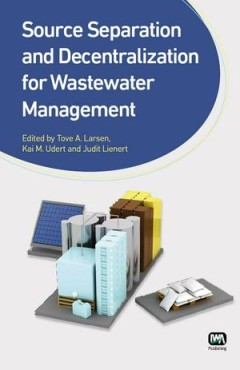
Source Separation and Decentralization for Wastewater Management
Source Separation and Decentralization for Wastewater Management sets up a comprehensive view of the resources involved in urban water management. It explores the potential of source separation and decentralization to provide viable alternatives to sewer-based urban water management. The book presents a comprehensive view of the state of the art of source separation and decentralization. It dis…
- Edition
- -
- ISBN/ISSN
- 9781843393481
- Collation
- -
- Series Title
- -
- Call Number
- -

Soil Erosion and Carbon Dynamics
The most complete, nonpartisan source of information on this hot agronomic topic available today, this book brings together a diverse group of papers and data to resolve the debate between sedimentologists and soil scientists and agronomists over whether the effects of soil erosion on carbon and atmospheric CO2 is beneficial or destructive. Divided into four sections, it offers data on how soil…
- Edition
- Ed. I
- ISBN/ISSN
- 9781135460556
- Collation
- -
- Series Title
- -
- Call Number
- -
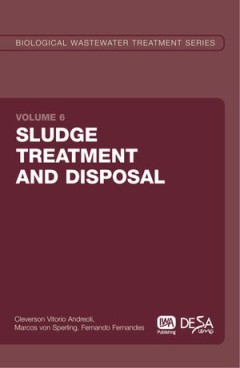
Sludge Treatment: and Disposal
"Sludge Treatment and Disposal is the sixth volume in the series Biological Wastewater Treatment. The book covers in a clear and informative way the sludge characteristics, production, treatment (thickening, dewatering, stabilisation, pathogens removal) and disposal (land application for agricultural purposes, sanitary landfills, landfarming and other methods). Environmental and public health i…
- Edition
- -
- ISBN/ISSN
- 9781843391661
- Collation
- -
- Series Title
- -
- Call Number
- -
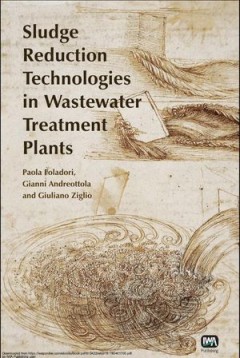
Sludge Reduction Technologies in Wastewater Treatment Plants
Sludge Reduction Technologies in Wastewater Treatment Plants is a review of the sludge reduction techniques integrated in wastewater treatment plants with detailed chapters on the most promising and most widespread techniques. The aim of the book is to update the international community on the current status of knowledge and techniques in the field of sludge reduction. It will provide a compreh…
- Edition
- -
- ISBN/ISSN
- 9781843392781
- Collation
- -
- Series Title
- -
- Call Number
- -
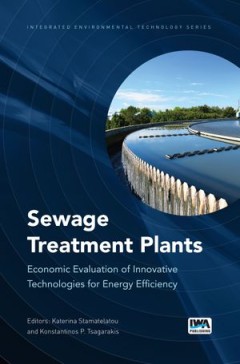
Sewage Treatment Plants: Economic Evaluation of Innovative Technologies for E…
Sewage Treatment Plants: Economic Evaluation of Innovative Technologies for Energy Efficiency aims to show how cost saving can be achieved in sewage treatment plants through implementation of novel, energy efficient technologies or modification of the conventional, energy demanding treatment facilities towards the concept of energy streamlining. The book brings together knowledge from Engineeri…
- Edition
- -
- ISBN/ISSN
- 9781780405018
- Collation
- -
- Series Title
- -
- Call Number
- -
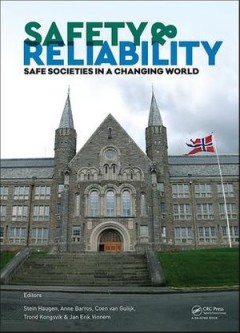
Safety and Reliability - Safe Societies in a Changing World: Proceedings of E…
Safety and Reliability – Safe Societies in a Changing World collects the papers presented at the 28th European Safety and Reliability Conference, ESREL 2018 in Trondheim, Norway, June 17-21, 2018. The contributions cover a wide range of methodologies and application areas for safety and reliability that contribute to safe societies in a changing world. These methodologies and applications inc…
- Edition
- -
- ISBN/ISSN
- 9781351174664
- Collation
- -
- Series Title
- -
- Call Number
- -
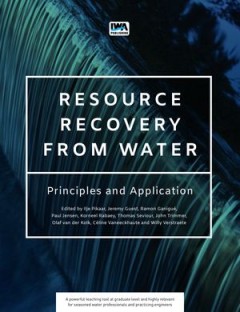
Resource Recovery from Water: Principles and Application
Throughout history, the first and foremost role of urban water management has been the protection of human health and the local aquatic environment. To this end, the practice of (waste-)water treatment has maintained a central focus on the removal of pollutants through dissipative pathways. Approaches like – in the case of wastewater treatment – the activated sludge process, which makes ‘…
- Edition
- -
- ISBN/ISSN
- 9781789060317
- Collation
- -
- Series Title
- -
- Call Number
- -
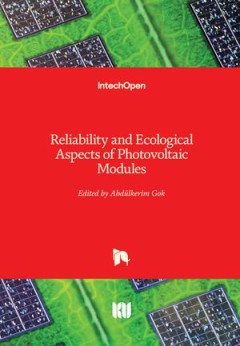
Reliability and Ecological Aspects of Photovoltaic Modules
Photovoltaic (PV) solar energy is expected to be the world's largest source of electricity in the future. To enhance the long-term reliability of PV modules, a thorough understanding of failure mechanisms is of vital importance. In addition, it is important to address the potential downsides to this technology. These include the hazardous chemicals needed for manufacturing solar cells, especial…
- Edition
- -
- ISBN/ISSN
- 9781789848229
- Collation
- -
- Series Title
- -
- Call Number
- -
 Computer Science, Information & General Works
Computer Science, Information & General Works  Philosophy & Psychology
Philosophy & Psychology  Religion
Religion  Social Sciences
Social Sciences  Language
Language  Pure Science
Pure Science  Applied Sciences
Applied Sciences  Art & Recreation
Art & Recreation  Literature
Literature  History & Geography
History & Geography